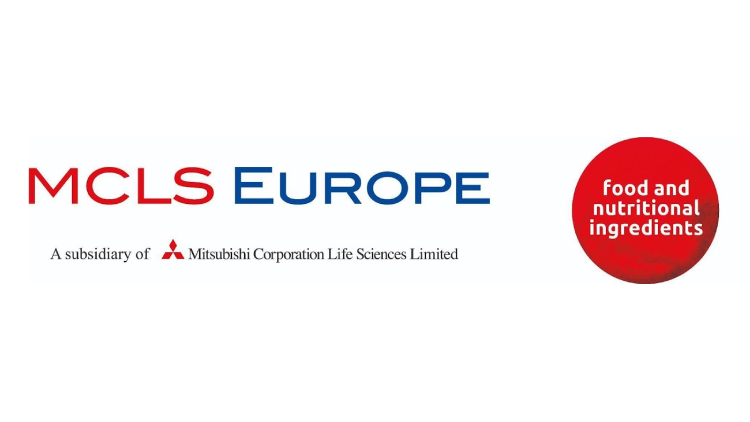Promotional Features
Bringing a leading Japanese postbiotic ingredient to Europe
Of all the ‘biotics’ currently available, postbiotics appear to be high on the agenda. A specialty heat treated Lactobacillus plantarum strain from Japan joins the space.
Over the past few years, ingredients categorized as either paraprobiotics, immunobiotics, tyndalized cells and postbiotics have seen a serious increase in interest of the general public. In particular, Postbiotics have seen a 1300% increase in Google searches (https://lnkd.in/d3DRDZt7).
When discussing the definitions of biotics, sometimes terms seem to be used inconsistently, and lack clear definitions. Again, in particular p ostbiotics need a clearer definition.
Driven by these developments, the International Scientific Association for Probiotics and Prebiotics (ISAPP) reviewed the definition and scope of postbiotics in 2019. The full definition and association article was published in May 2021 (Salminen, S et al., 2021); and sparked further discussion. (Aguilar-Toalá, J. E et al, 2021).
Since 2019, a lot has happened in the field of ‘biotics’ in general, and postbiotics specifically. Perhaps partly fuelled by the COVID-19 pandemic, new product innovations have started to appear on the market: both within Food supplements and Functional Food & Beverage. Since the category is still relatively new, some key facts on postbiotics, as described by Innova Market Insights, have been summarized below:
- Postbiotics are the metabolic by-products of fermentation. They can be produced by bacterial strains or through processing by fermentation.
- Postbiotics began to grow in 2019 and have continued to expand, showing strong growth of 56.9% from a small base (CAGR, global, 2018/H2 to 2019/H1 to 2020/H2 to 2021/H1).
- Products with postbiotics are most prominent in North America and appear to be spreading to Latin America, Eastern Europe and Asia. The term postbiotics features prominently on supplement labels in South Korea.
- Because they are not live ingredients, postbiotics retain their functionality during processing and can withstand the harsh digestive environment in the gut.
- Postbiotics are positioned to appeal to parents who want to improve the digestive health of their children.
- In supplements, postbiotics offer consumers additional options for gut health and immunity. Most of the postbiotic product launches in 2021 are supplements.
One specific postbiotic ingredient has gained increasing interest: it is a Lactobacillus plantarum strain that was first isolated from Narezushi, a traditional fermented fish dish from South-East Asia. The specific strain is called L-137; and this is also where the branded ingredient derives its name from.
Specialized heat treatment of this L-137 strain results in some key advantages. Firstly, the product is both acid- and heat stable. This allows for a wide variety of possible Food & Beverage applications. Consider shelf stable beverages, bread, savoury snacks or fruit juices. It could make it easier for more consumers to purchase good-for-health products as it becomes available in an increasing number of consumer products.
Secondly, since the postbiotic is acid stable, it is able to reach the small intestine and activate immune cells. In particular, L-137 induces both Interleukin 12 (IL-12) production and beta interferon.
Clinical evidence points out that daily intake of Lactobacillus plantarum L‑137 improves inflammation and lipid metabolism in overweight adults and that Lactobacillus plantarum L-137 decreases the incidence of upper respiratory tract infection in healthy subjects with high levels of psychological stress. Furthermore, daily intake of Lactobacillus plantarum L‑137 decreases the probing depth in patients undergoing supportive periodontal therapy.
So, L-137 might have a positive effect on the overall immune system through optimizing gut health.
At the Probiota conference in Copenhagen, during March 2022, postbiotics were high on the agenda. While it seems that there are still challenges with regards to regulation, definitions and consumer education, it becomes clear that postbiotics will play a big role alongside existing pre- and probiotics. In that regard, the timing of the specialty postbiotic from Japan, L-137, comes at an interesting time.
References:
Aguilar-Toalá, J. E., Arioli, S., Behare, P., Belzer, C., Berni Canani, R., Chatel, J. M., ... & Zhou, Z. (2021). Postbiotics—When simplification fails to clarify. Nature Reviews Gastroenterology & Hepatology, 18(11), 825-826.
Salminen, S., Collado, M. C., Endo, A., Hill, C., Lebeer, S., Quigley, E. M., ... & Vinderola, G. (2021). The International Scientific Association of Probiotics and Prebiotics (ISAPP) consensus statement on the definition and scope of postbiotics. Nature Reviews Gastroenterology & Hepatology, 18(9), 649-667.
Arimori, Yojiro, et al. "Daily intake of heat-killed Lactobacillus plantarum L-137 enhances type I interferon production in healthy humans and pigs." Immunopharmacology and immunotoxicology 34.6 (2012): 937-943.
Hirose, Yoshitaka, et al. "Lipoteichoic acids on Lactobacillus plantarum cell surfaces correlate with induction of interleukin‐12p40 production." Microbiology and immunology 54.3 (2010): 143-151.
Tanaka, Yusuke, et al. "Daily intake of heat-killed Lactobacillus plantarum L-137 improves inflammation and lipid metabolism in overweight healthy adults: a randomized-controlled trial." European Journal of Nutrition 59.6 (2020): 2641-2649.
Hirose, Yoshitaka, et al. "Oral intake of heat-killed Lactobacillus plantarum L-137 decreases the incidence of upper respiratory tract infection in healthy subjects with high levels of psychological stress." Journal of nutritional science 2 (2013).
Iwasaki, Kazuto, et al. "Daily intake of heat-killed Lactobacillus plantarum L-137 decreases the probing depth in patients undergoing supportive periodontal therapy." Oral Health Prev Dent 14.3 (2016): 207-14.


